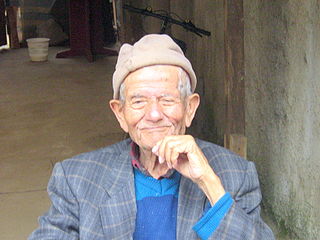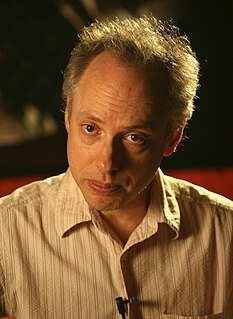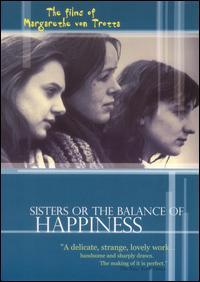Related Research Articles

Happiness, in the context of mental or emotional states, is positive or pleasant emotions ranging from contentment to intense joy. Other forms include life satisfaction, well-being, subjective well-being, flourishing and eudaimonia.

Positive psychology is the scientific study of what makes life most worth living, focusing on both individual and societal well-being. It studies "positive subjective experience, positive individual traits, and positive institutions...it aims to improve quality of life." It is a field of study that has been growing steadily throughout the years as individuals and researchers look for common ground on better well-being.

Happiness is a 1998 American black comedy-drama film written and directed by Todd Solondz, that portrays the lives of three sisters, their families, and those around them. The film was awarded the FIPRESCI Prize at the 1998 Cannes Film Festival for "its bold tracking of controversial contemporary themes, richly-layered subtext, and remarkable fluidity of visual style," and the cast received the National Board of Review award for best ensemble performance.

Todd Solondz is an American filmmaker and playwright known for his style of dark, socially conscious satire. Solondz's work has received critical acclaim for its commentary on the "dark underbelly of middle class American suburbia," a reflection of his own background in New Jersey. His work includes Welcome to the Dollhouse (1995), Happiness (1998), Storytelling (2001), Palindromes (2004), Life During Wartime (2009), Dark Horse (2011), and Wiener-Dog (2016).
Something Like Happiness is a 2005 Czech movie directed by Bohdan Sláma. It is about finding hope in the midst of disappointment by three young people who grew up in the same run-down block of flats and are now coming of age. The film won the Golden Seashell at the San Sebastian Film Festival.
Heo Jin-ho is a South Korean film director and screenwriter.

Waiting for Happiness is a 2002 Mauritanian drama film written and directed by Abderrahmane Sissako. Main characters are a student, who has returned to his home in Nouadhibou, an electrician and his child apprentice, and the local women. The film is characterized by a succession of scenes of the daily life of the characters which are unique to their particular African and Arab cultures, while borrowing from tropes of Tayeb Saleh's Season of Migration to the North. The viewer must interpret the scenes without much help from narrator or plot, while the structure of the film hangs on a series of mundane but visually arresting moments, many of which are repeated in other works in Abderrahmane Sissako's opus, including scenes at a barber shop and a photo booth, also present in his earlier La Vie Sur Terre and later Timbuktu. The film presents typical Mauritanian moments of beauty, struggle, alienation, and humor, which are experienced by groups socially divided from each other, such as Bidhan women drinking tea and gossiping, West African migrants passing through Mauritania to get to Europe. The young protagonist who has returned interacts with all of these groups as an outsider, as he struggles to remember even his own Hassaniya Arabic dialect, but prefers instead French. Many of the themes and characters presage Sissako's 2014 film Timbuktu, and both explore liminal Sahel identities authentically situated in everyday life. Waiting for Happiness premiered at the 2002 Cannes Film Festival in the Un Certain Regard section.

Sisters, or the Balance of Happiness is a 1979 West German drama film written and directed by Margarethe von Trotta.
Carlos López Moctezuma Pineda was a Mexican film actor. He appeared in more than 210 films between 1938 and 1980. He starred in the film Happiness, which was entered into the 7th Berlin International Film Festival.
The Sunbeam is a 1912 American film directed by D. W. Griffith.

Hector and the Search for Happiness is a 2014 comedy-drama film directed by Peter Chelsom and co-written with Tinker Lindsay and Maria von Heland, based on François Lelord's novel of the same name. The film stars Simon Pegg and Rosamund Pike.

Happiness Ahead is a 1934 American comedy film directed by Mervyn LeRoy and starring Dick Powell with Josephine Hutchinson. This was Hutchinson's (credited) debut.
Happiness for Two is a 1940 Czechoslovak musical film, directed by Miroslav Cikán. It stars Jarmila Ksírová, Jindra Hermanová, Stanislav Neumann.
Happiness of Three Women is a 1917 American drama silent film directed by William Desmond Taylor and written by Adele Harris and Albert Payson Terhune. The film stars House Peters, Sr., Myrtle Stedman, Larry Steers, Daisy Jefferson, William Hutchinson and Lucille Ward. The film was released on January 18, 1917, by Paramount Pictures.

The Pursuit of Happiness is a 1934 American historical comedy film directed by Alexander Hall and written by Stephen Morehouse Avery, J.P. McEvoy and Virginia Van Upp. The film stars Francis Lederer, Joan Bennett, Charlie Ruggles, Mary Boland, Walter Kingsford, Minor Watson and Adrian Morris. The film was released on September 28, 1934, by Paramount Pictures.

Invitation to Happiness is a 1939 American drama film directed by Wesley Ruggles and written by Claude Binyon. The film stars Irene Dunne, Fred MacMurray, Charlie Ruggles, Billy Cook, William Collier, Sr. and Marion Martin. The film was released on June 16, 1939, by Paramount Pictures.

The Happiness of Three Women is a 1954 British drama film directed by Maurice Elvey and starring Brenda de Banzie, Donald Houston and Petula Clark. The film was released on the Odeon Circuit as a double bill with The Crowded Day. It was made at Walton Studios with sets designed by the art director John Stoll. It was adapted from Eynon Evans's Welsh-set play Wishing Well.

Big Happiness is a lost 1920 American silent drama film directed by Colin Campbell and starring Dustin Farnum. It was produced by Dustin Farnum and distributed through Robertson-Cole Distributing Corporation.

Little Miss Happiness is a 1916 American silent drama film directed by John G. Adolfi and starring June Caprice, Harry Hilliard, Zena Keefe, Sara Alexander, Sidney Bracey, and Leo A. Kennedy. The film was released by Fox Film Corporation on August 21, 1916.
References
- ↑ "Happiness". Film Affinity. Retrieved 9 September 2020.